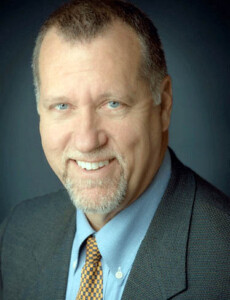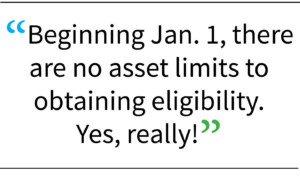Your Estate … with James Ward: Eligibility for Medi-Cal nursing home coverage is changing
Beginning Jan. 1, there are no asset limits to obtaining eligibility.
![]()
By James Ward

James Ward
 Unfortunately, many families have needlessly lost hundreds of thousands of dollars, and in rare cases, more than a million dollars, due to misinformation about Medi-Cal rules regarding the eligibility of Medi-Cal to pay for the care of elders in skilled nursing facilities. That represents a tragic outcome for many families.
Unfortunately, many families have needlessly lost hundreds of thousands of dollars, and in rare cases, more than a million dollars, due to misinformation about Medi-Cal rules regarding the eligibility of Medi-Cal to pay for the care of elders in skilled nursing facilities. That represents a tragic outcome for many families.
To this day, thousands of families are still paying for care that can be covered by Medi-Cal if you know the ins and outs of the eligibility rules.
The cost of private pay in a skilled nursing facility can easily run from $14,000 a month for a regular facility, to around $27,000 to $29,000 a month in a facility providing sub-acute care. That’s a lot of money even if you only stay the average of 30 months, but what if you end up staying longer? What if you end up there for three or four years?
 I encourage you to not be one of the families who ends up paying hundreds of thousands of dollars because of misinformation from a friend, or something you read on the Internet, or even something you were told by a social worker. Whether the bill is being paid by the elder or the family, make sure it’s a bill you really need to pay, or if a few changes can make the elder eligible to have Medi-Cal pay the bill.
I encourage you to not be one of the families who ends up paying hundreds of thousands of dollars because of misinformation from a friend, or something you read on the Internet, or even something you were told by a social worker. Whether the bill is being paid by the elder or the family, make sure it’s a bill you really need to pay, or if a few changes can make the elder eligible to have Medi-Cal pay the bill.
There was a time when nursing home residents couldn’t have more than $2,000 of countable assets. You could have a $1 million residence and still qualify, but then the State of California would seek to recover from the value of the residence after your death if you didn’t take special steps to protect it. Then, that law changed so the residence was protected from recovery if it was in a revocable trust, and later, the $2,000 countable asset limit climbed to $130,000 and then even higher.
I’ve had people come to me who had already spent more than or $500,000 of their mother’s savings because they were told she couldn’t qualify due to the simple fact she owned her own home. During the past 15 years, that was never the rule, and there have always been ways to avoid the estate recovery of paying back the debt after death. For experienced Medi-Cal attorneys who have dealt with this topic for years, the solutions to eligibility and avoiding recovery have been easy.
 Now, after the rules became much easier for gaining eligibility during the past eight years or so, the rules are on the verge of becoming even more liberal. Yes, eligibility to have Medi-Cal pay for the skilled nursing home will become quite easy in most cases.
Now, after the rules became much easier for gaining eligibility during the past eight years or so, the rules are on the verge of becoming even more liberal. Yes, eligibility to have Medi-Cal pay for the skilled nursing home will become quite easy in most cases.
Beginning Jan. 1, there are no asset limits to obtaining eligibility. Yes, really! No asset limits! What’s the catch? Well, the elder’s income will still go to the skilled nursing facility, but this isn’t a change. If the income is low, it might not make a difference, and if the income is high, it may be possible to shield the assets that produce the income, and therefore also protect the income from those assets from going to the nursing home.
Is there another catch? Well, yes, in a way. The new changes will make it easier for thousands of people to be eligible for Medi-Cal to pay their nursing home stay, but there are very, very few nursing homes. The result is you can be eligible for Medi-Cal to pay, but you might not be able to find a bed.
Talk with an experienced Medi-Cal attorney to learn how the new rules will affect your family, and, as always, make sure you have a good estate plan in place so trusted people can make decisions for you if you are unable to make those decisions yourself.
- Your Estate … with James Ward: Check your property title form of ownership to avoid ambiguity or confusion - March 30, 2024
- Your Estate … with James Ward: Department of Public Health warns nursing homes on discrimination - March 9, 2024
- Your Estate … with James Ward: Check out the various charities before making any donations - February 9, 2024
